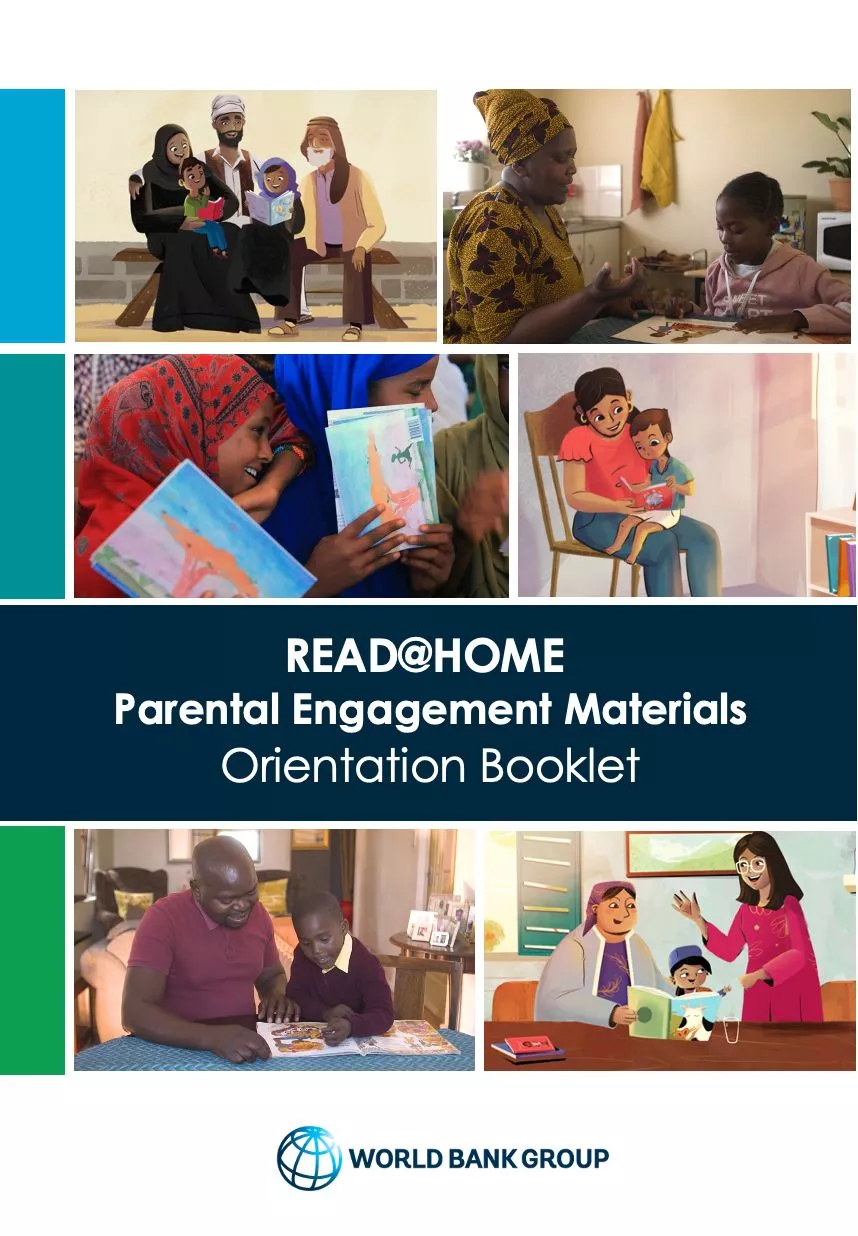

This booklet provides an overview of all the resources in the Parent Engagement Package and guidance on how these materials could be used, adapted, and combined in different contexts.


This booklet provides an overview of all the resources in the Parent Engagement Package and guidance on how these materials could be used, adapted, and combined in different contexts.
This Guidance Note is designed to support government and World Bank teams in preparing accurate and complete bidding documents for books, evaluating proposals, and awarding contracts.
Access to books (textbooks, teacher’s guides, and materials for reading practice) is key to addressing learning poverty. Children need to be exposed to sufficient and appropriate text, and they need to be afforded the time and opportunity to practice reading in school and at home. Appropriate design of reading books will facilitate learning, support instruction, and promote independent learning.
Education projects funded by The World Bank procure textbooks and other teaching and learning materials through national and international tenders (bids). Documents for the tenders describe the purposes of the procurement, the qualification requirements for potential bidders, and the technical specifications of the education materials to be procured.
The World Bank’s Read@Home initiative is an unprecedented effort to get reading, learning, and play materials into homes to address the learning loss caused by the COVID-19 pandemic and widespread, pre-existing "learning poverty". Connected to the distribution and use of these materials is the question of copyright.
This Guidance Note was created for the Read@Home project to help writers, illustrators, and designers create books for young children to share with their families at home. Of course, such books may be used in schools as well. In either case, these will be enjoyable books that children will want to read, so they will learn to love reading and develop the life-long habit of reading.
Low-cost, high-quality printing of teaching and learning materials (TLM) requires well-designed and highly competitive procurement. Since 2010, Mozambique has implemented a range of measures to reduce costs over time, making its printing procurement possibly the most competitive in Africa. As a result, printed pages purchased by Mozambique cost less than half of those purchased across the channel in Madagascar.
This report is a brief introduction to the Republic of the Marshall Islands Book Supply Chain, focusing for practical reasons on the National capital, Majuro. The initiative began through the lens of human rights and particularly a child’s right to literacy in a language they understand. It was sparked by the lack of children’s books in the Marshall Islands.
As schools in Uganda closed down in late March 2020 due to Covid-19, Mango Tree Literacy Lab (MTLL) had to reconsider its 2020 work plan.